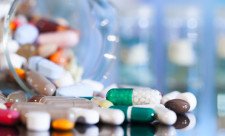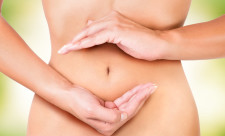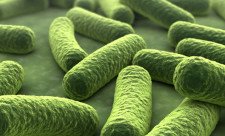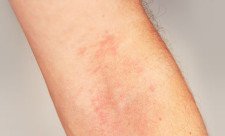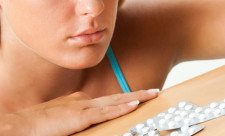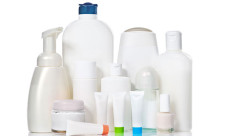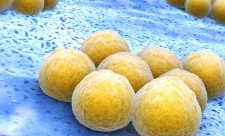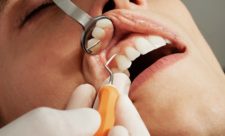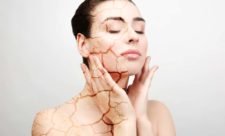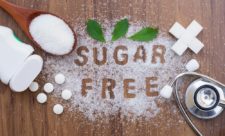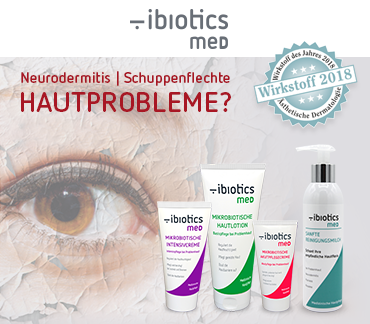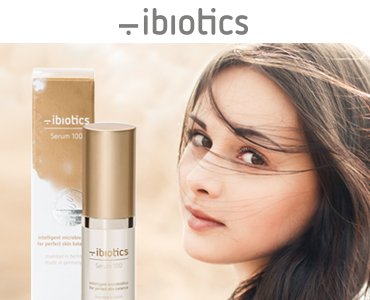
For a good 18 months now, we’ve been in the grip of the Corona pandemic, and covering your mouth and nose (face mask) has turned out to be one of the key countermeasures – cloth and everyday masks to begin with, later followed by FFP2 or surgical masks. They may offer protection from aerosols, but for people living with skin issues such as atopic dermatitis or acne they will likely bring additional impairments. As the humid air we exhale becomes trapped under the masks, the result is a skin micro climate in which germs and pathogens multiply and which may lead to the worsening of existing skin inflammations.
The technical term is “perioral dermatitis”, whereas general public and media often use “mascne”, a portmanteau of mask and acne. What happens is that, among others, the humid air we exhale dissolves the lipids situated between the cells of the cornified layer. This changes the skin’s pH-value and, consequently, its protective acid mantle, the skin dries out and its protective barrier function suffers. Simultaneously, tiny inflammations and pimples may emerge.
Currently, with incidence counts dropping, routine mask use is in decline. But some professional groups have to continue wearing surgical or FFP2 masks all day. Hence, medical specialists, non-medical practitioners, scientists, and institutions such as the American Academy of Dermatology (AAD) provide insights on ways to helping your skin recover and develop a healthy skin flora.
It is important to make sure that masks are fitted properly, on the one hand to stop outside viruses and pathogens from entering, and but also to avoid mask chaffing which leads to skin irritations. Once worn for an extended period, surgical masks – also called single-use masks – should be discarded. FFP2 or KN95 masks may be repeatedly dried for at least seven days, but should also be discarded after one or two months.
Microbiotic medical skincare can be used to treat the skin, regulating moisture and helping the skin flora to recover. During this phase – as indeed in general – it is advisable to refrain from intensive cleaning procedures such peeling since these put undue stress on the skin and its layers. Similarly, and by contrast to ADD recommendations, it is better to not use strongly moisturizing lotions. This helps to maintain the skin’s natural lipid balance, and skin blemishes and acne abate.
Sources:
https://www.aad.org/public/everyday-care/skin-care-secrets/face/prevent-face-mask-skin-problems
https://www.deutsche-apotheker-zeitung.de/news/artikel/2021/01/18/wenn-ffp2-masken-privat-wiederverwendet-werden-dann-so
https://www.deutsche-apotheker-zeitung.de/news/artikel/2020/11/10/wie-kriegt-man-maskne-in-den-griff
https://www.rbb-online.de/rbbpraxis/safespace/maskne—was-ist-das-und-wie-kann-ich-es-vermeiden–.html
https://www.ndr.de/ratgeber/gesundheit/Akne-durch-Masken-Was-tun-wenn-die-Haut-leidet-,akne148.html
Dieser Post ist auch verfügbar auf: German

 9. Jul 2021
9. Jul 2021 Popular
Popular Recent
Recent Comments
Comments
